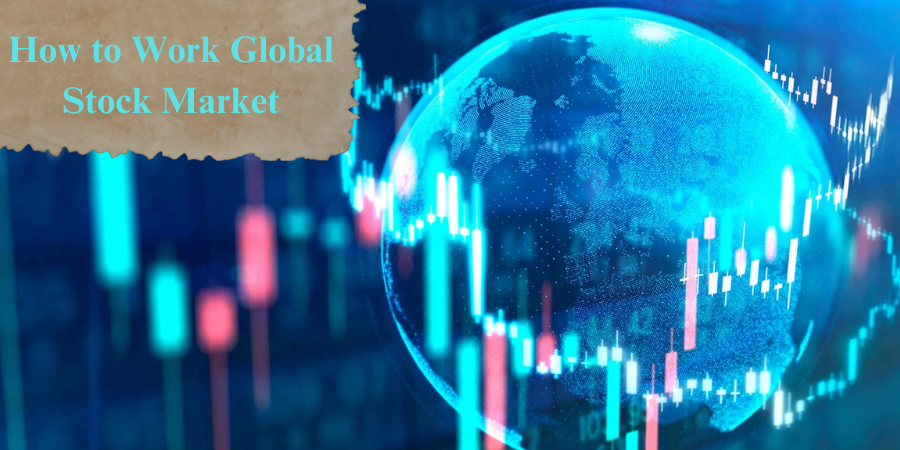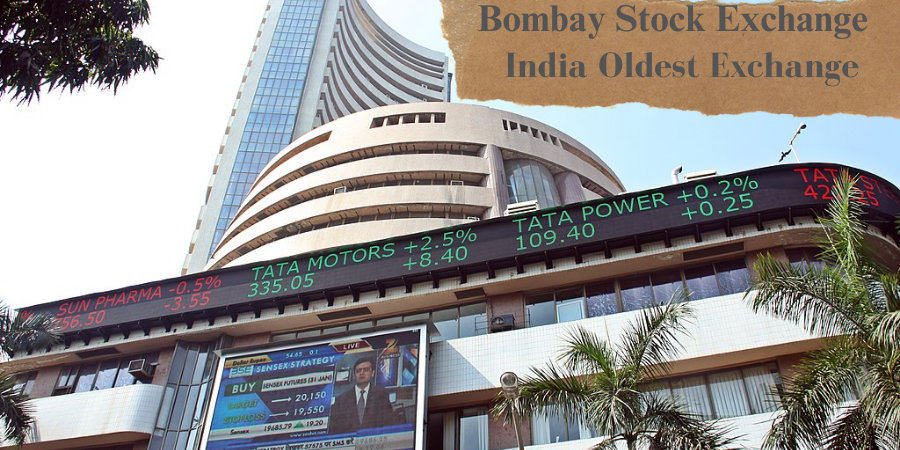The global stock market refers to the collective markets across the world where stocks, bonds, and other securities are bought and sold. It is a critical component of the global economy and comprises major exchanges. total Stock Market Global capitalization is US$ 111 trillion and 60000+ companies listed.

Characteristics of the Global Stock Market:
Interconnectivity: Global markets are increasingly interconnected. Events in one region (e.g., U.S. Federal Reserve decisions) often ripple across others.
Technology: Algorithms, high-frequency trading, and digital platforms make trading faster and more accessible.
Sectoral Focus: Different markets dominate in different industries (e.g., tech in NASDAQ, energy in TSX).
Trends and Key Indicators
Indexes: Benchmarks like the S&P 500, FTSE 100, Nikkei 225, and MSCI World Index track market performance.
Economic Data: GDP growth, inflation, and employment reports affect investor sentiment.
Geopolitical Events: Trade wars, global war, political instability, and global crises can disrupt markets.
Sustainability: ESG (Environmental, Social, Governance) investing is gaining traction globally.
Would you like insights into specific regions, indices, or current trends in global stock market.
Major Global Stock Exchange:
1. New York Stock Exchange
New York Stock Exchange (NYSE): (Leading role play in Global Stock Market) New York Stock Exchange (NYSE) is largest stock exchange in the world. Which located in New York. Often referred to as the “Big Board,” the NYSE has been a symbol of American capitalism and global finance since its inception.
founded in 17 mar.1792, Market Cap- US$ 28.33 Trillion.
Key Person- Sharon Bowen (Chair), Lynn Martin (President)
Location: 11 Wall Street, Manhattan, New York City
Market Cap: Over $25 trillion (as of recent years)
Parent Company: Intercontinental Exchange (ICE), which acquired the NYSE in 2013.
Listed Companies: Includes some of the world’s largest corporations, such as:
Apple
Berkshire Hathaway
ExxonMobil
Coca-Cola
JPMorgan Chase
How It Works
Trading Hours:
Trading time: 9:30 AM to 4:00 PM ET.
Pre-market and after-hours trading sessions are available electronically.
Types of Securities:
Common and preferred stocks.
ETFs (Exchange-Traded Funds).
Bonds and derivatives.
Trading System:
The NYSE operates as a hybrid market, combining open outcry trading (floor trading) with electronic trading systems for efficiency.
NYSE Composite Index:
Tracks all stocks listed on the NYSE.
S&P 500 (though not exclusive to NYSE):
Represents 500 leading U.S. companies across various industries.
Key Features and Importance
IPO Hub: Many companies debut on the NYSE through Initial Public Offerings (IPOs), raising significant capital.
Stock Market Global Influence and High Standards: The NYSE has stringent listing requirements related to market capitalization, earnings, and governance.
Recent Trends and Innovations
Technology Integration: Advanced algorithms and digital trading platforms have transformed operations. Working together with technology in International stock market for sustainable growth.
Sustainability Focus: Growing emphasis on ESG-compliant companies.
Global Listings: Attracts companies from around the world seeking U.S. investor access.
2. Shanghai Stock Exchange (SSE China)
Shanghai Stock Exchange (SSE) is world second largest Global Stock Market.
The Shanghai Stock Exchange (SSE), located in Shanghai, China, is one of the largest stock exchanges in the world and plays a pivotal role in China’s economy. It is distinct from the Shenzhen Stock Exchange (SZSE) and primarily lists large, state-owned enterprises alongside innovative private companies.
Founded: November 26, 1990.
Location: Shanghai, China.
Market Cap: Over $7.5 trillion (as of recent years), making it one of the top exchanges globally.
Regulator: Overseen by the China Securities Regulatory Commission (CSRC).
Listed Companies: Over 2,000, including major Chinese and international firms like:
PetroChina
Industrial and Commercial Bank of China (ICBC)
China Mobile
Alibaba (dual listing on HKEX and NYSE)
Structure and Trading
The SSE is divided into three main boards:
Main Board:
Focused on large, established companies, particularly state-owned enterprises.
STAR Market (Sci-Tech Innovation Board):
Launched in 2019, it focuses on high-tech and innovative enterprises, comparable to NASDAQ.
Encourages listings in industries like biotech, AI, semiconductors, and renewable energy.
Bond Market:
Offers corporate, government, and municipal bonds.
Trading Hours
Regular trading:
Morning session: 9:30 AM to 11:30 AM and After noon session 1:30PM to 3:00 PM (CST)
No pre-market or after-hours trading is available.
Key Indexes
SSE Composite Index:
Tracks the overall performance of all A-shares and B-shares listed on the SSE.
SSE 50: blue chip company listed and STAR 50: reflects the performance company.
Tracks the top 50 blue-chip companies listed on the exchange.
Types of Shares
A-Shares:
Traded in Chinese yuan (CNY) and primarily available to domestic investors.
Foreign investors can access A-shares through Qualified Foreign Institutional Investor (QFII) programs or the Stock Connect program with Hong Kong.
B-Shares:
Traded in foreign currencies like USD.
Initially aimed at foreign investors but now accessible to domestic investors.
Key Features and Importance
Economic Indicator: Reflects the health and direction of China’s economy.
Government Influence: Many listed companies are state-owned enterprises, and the exchange aligns with national economic policies.
Investor Base:
Predominantly retail investors, though institutional investors are growing.
High trading volumes due to active participation by domestic investors.
Recent Trends and Innovations
STAR Market:
The introduction of the STAR Market has attracted high-growth tech firms and boosted China’s focus on self-reliance in technology.
Globalization: Global Stock Market Accessible
The SSE is increasingly accessible to international investors via programs like Shanghai-Hong Kong Stock Connect and Bond Connect.
ESG and Sustainability:
Growing emphasis on green finance and sustainable development.
3. Bombay Stock Exchange (BSE India)
The Bombay Stock Exchange (BSE) is largest stock exchanges in India and 5505 companies listed according 3 October 2024. which founded in 1875. Market cap is US$ 5 trillion. It is headquartered in Mumbai, India, and plays a critical role in the Indian financial system by facilitating the trading of various financial instruments, including equities, derivatives, debt instruments, mutual funds, and currencies.

Key Features of BSE with Global Stock Market
Major Index:
S&P BSE Sensex: The flagship index of the BSE, comprising 30 of the largest and most actively traded companies across key sectors of the Indian economy.
Market Segments:
Equity
Derivatives (futures and options)
Debt
Currency derivatives
Mutual funds
ETFs (Exchange Traded Funds)
Trading Hours:
Trading time: 9:15 AM to 3:30 PM IST, Monday to Friday.
Technology:
The BSE operates on a high-speed trading platform called BOLT+, which provides low-latency and robust trading infrastructure.
In 2017, the BSE introduced the India INX (International Exchange), located in the GIFT City, Gujarat, for offshore trading.
Sustainability:
The BSE has a Greenex index for companies focusing on environmental sustainability, energy efficiency and sustainable for global stock market investors.
The BSE continues to innovate and grow, adapting to global financial trends.
4. Tokyo Stock Exchange (TSE Japan)
The Tokyo Stock Exchange (TSE), is the primary stock exchange in Japan. Operated by the Japan Exchange Group (JPX), which was formed from the merger of the TSE and the Osaka Securities Exchange in 2013, it serves as a hub for both domestic and international investment in Japanese equities. Market cap. is 923 trillion yen (6.9 trillion US Doller) and 3900 company listed in Tokyo Stock Exchange.
Prime Market: Focuses on large, globally competitive companies.
Standard Market: Medium-sized companies with stable growth potential.
Growth Market: Small, emerging companies with high growth potential.
Major Indices:
Nikkei 225: A price-weighted index of 225 top-tier companies.
TOPIX (Tokyo Stock Price Index): Tracks all companies in the Prime Market, weighted by market capitalization.
Trading Hours:
Morning Session: 9:00 AM to 11:30 AM (local time)
Afternoon Session: 12:30 PM to 3:00 PM (local time)
Notable Listings: The TSE hosts many globally recognized companies, such as Toyota, Sony, Mitsubishi, and SoftBank.
Foreign Investment: The TSE attracts significant interest from global investors, driven by Japan’s advanced economy and the presence of multinational corporations.
5. London Stock Exchange (LSE London)
London Stock Exchange (LSE):LSE is major role in international stock market.
The London Stock Exchange (LSE), located in London, England, is one of the world’s oldest and most prominent stock exchanges. It serves as a financial hub for Europe, the Middle East, Africa, and beyond, hosting a diverse range of global companies.
Key Factor of LSE with Stock Market Global
Founded: 1801 (its origins trace back to 1698 as an informal stock trading venue).
Location: Paternoster Square, London.
Market Cap: Over $3.8 trillion (as of recent years).
Parent Company: London Stock Exchange Group (LSEG), which also owns other major financial entities like Refinitiv and FTSE Russell.
Listed Companies: Includes more than 1,300 companies from over 60 countries, such as:
BP
HSBC
Diageo
Unilever
BAE Systems
Structure and Trading
LSE Operate Two Main Market
The primary market for large, well-established companies.
Subsections include:
Premium Listing: Requires adherence to stricter regulations, making companies eligible for inclusion in FTSE indexes.
Standard Listing: Fewer regulatory requirements.
Alternative Investment Market (AIM):
Designed for smaller and emerging companies seeking access to public capital. Trading time: 8:00 AM to 4:30 PM GMT.
Offers pre-market and post-market trading sessions.
Key Indexes
FTSE 100:
top 100 companies listed by market cap. on the LSE.
FTSE 250:
Represents mid-cap companies, often considered a gauge of the UK’s domestic economy.
FTSE All-Share:
A comprehensive index of all eligible companies listed on the Main Market.
Key Features and Importance in Global Stock Market
Gateway to Global Investors: The LSE is a critical platform for international capital raising, especially for companies in emerging markets.
Diverse Listings: Hosts companies from industries like energy, finance, technology, and consumer goods.
Regulatory Standards: The exchange operates under the UK Financial Conduct Authority (FCA), ensuring robust investor protection.
Recent Trends and Innovations
Sustainability:
Introduction of the Green Economy Mark for companies generating significant revenue from sustainable activities.
Tech Listings:
Efforts to attract more technology companies, including reforms to IPO rules.
Global Partnerships:
Collaborations with international markets to facilitate dual listings and cross-border investments.
6. Frankfurt Stock Exchange (FSE Germany)
The Frankfurt Stock Exchange (FSE), is Germany’s largest stock exchange and one of the world’s most prominent. It is operated by the Deutsche Börse Group and is a hub for trading European and global securities. Market cap is US$ 2.37 and 436 companies listed according September 2023.
Key Features of FSE
Location and Market:
Located in Frankfurt, Germany that city heart of German financial system.
Handles the majority of the country’s equity trading and serves international investors.
Trading Platforms:
Xetra: The FSE’s electronic trading system that facilitates fast and efficient global trading of stocks, ETFs, bonds, and derivatives.
Börse Frankfurt: That platform offering for retail investors, offering more than 1.5 million securities for trading.
Indices:
DAX (Deutscher Aktienindex): Tracks the top 40 largest and most liquid German companies listed on the FSE.
Other indices include the MDAX (mid-cap companies), SDAX (small-cap companies), and Tech DAX (technology companies).
Trading Hours:
Xetra: 9:00 AM to 5:30 PM CET.
Börse Frankfurt: 8:00 AM to 8:00 PM CET.
Global Importance: Attracts significant foreign investment due to its reputation, stability, and comprehensive offerings.
Houses major multinational corporations such as Siemens, Volkswagen, Deutsche Bank, and SAP.
Post-Trade Services: Clearing and settlement are handled by Clearstream, a subsidiary of Deutsche Börse.
Sustainability Initiatives: Supports green and ESG-focused investments with products like the DAX 50 ESG index.
The Frankfurt Stock Exchange plays a critical role in connecting European markets to global investors.
